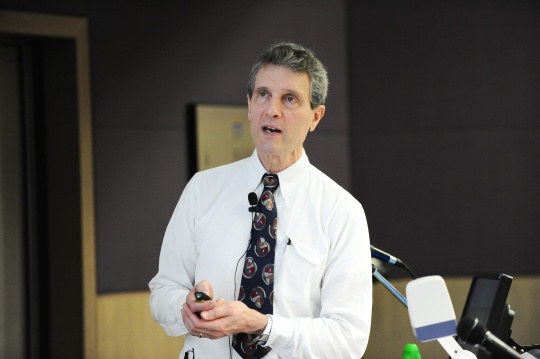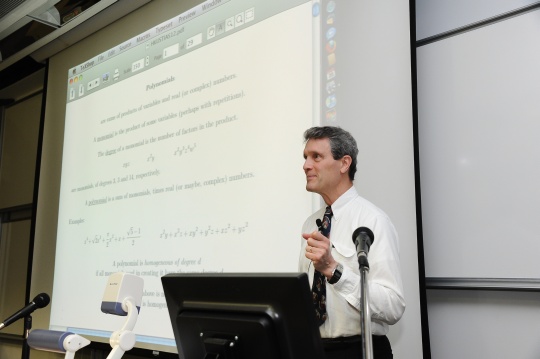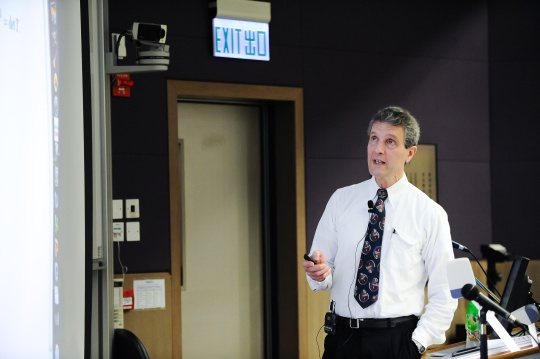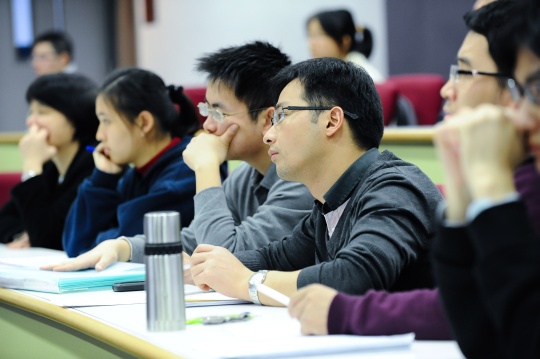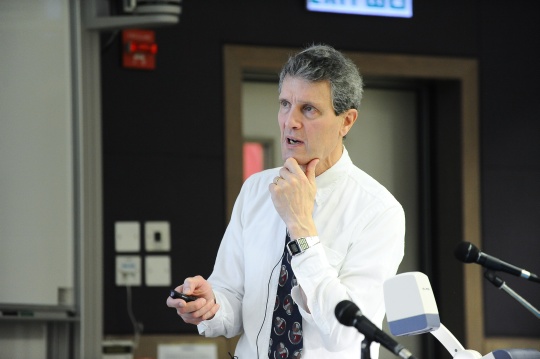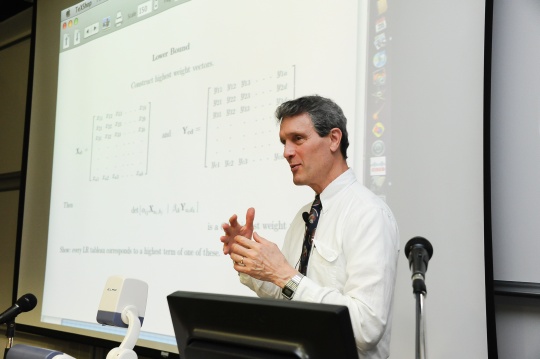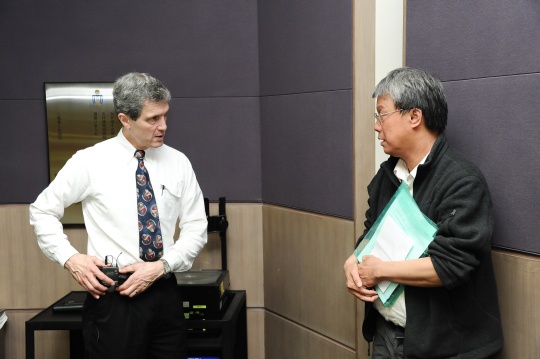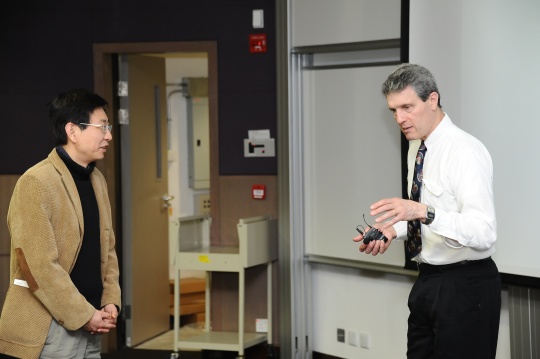New Paradigms in Invariant Theory: The Littlewood-Richardson Rule
Abstract
Since its beginnings in the early 19th century, invariant theory has provided impetus for advances in algebra. This influence continues today.
The idea of toric deformation has been especially fruitful for enhancing understanding of invariant theory and its cousin, representation theory. This talk will explain how tools developed for toric deformation allow one to reinterpret and work flexibly with combinatorial objects that were originally constructed in a somewhat ad hoc manner for purposes of representation theory.
The power of these ideas will be illustrated via a discussion of the the Littlewood-Richardson Rule, a central result of representation theory, with applications to analysis of combined systems (analogous to the multiple q-bit systems of quantum information theory).
About the Speaker
Prof. Roger Howe received his PhD from University of California at Berkeley in 1969, and has been a faculty member of Yale University since 1974. He was appointed William R. Kenan Jr. Professor of Mathematics in 2002. His mathematical research investigates symmetry and its applications. He is well-known for his contributions to representation theory, and in particular for the notion of a reductive dual pair, sometimes known as a Howe pair. He is a Fellow of the American Academy of Arts and Sciences and a Member of the US National Academy of Sciences.

